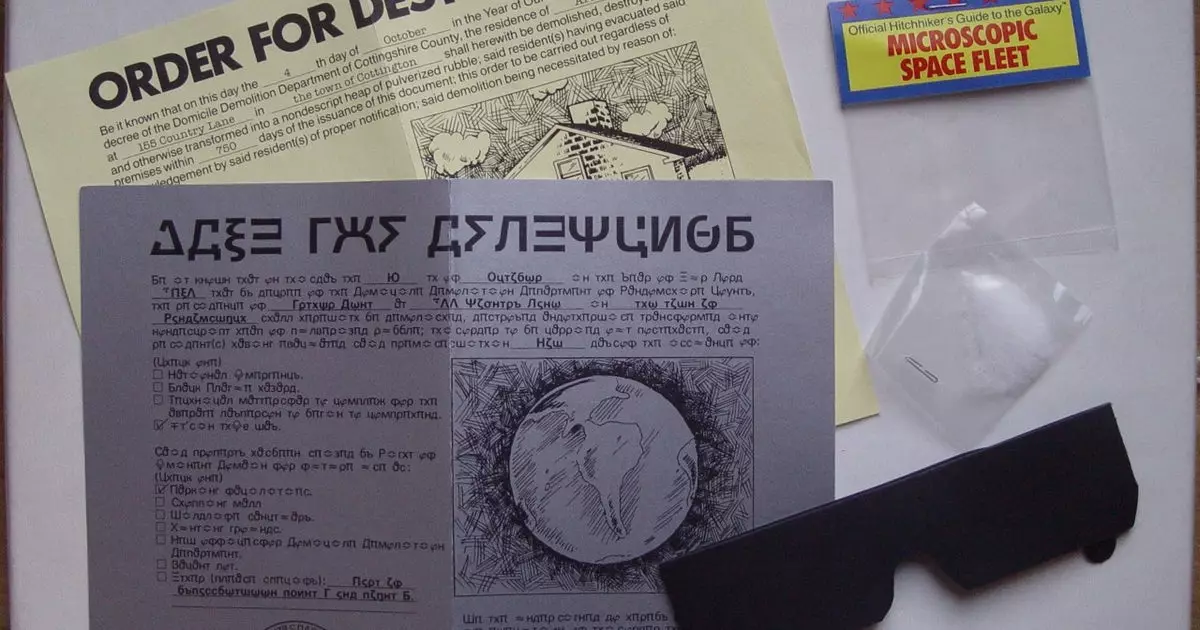In a world saturated with high-priced collectibles and flashy merchandise, there’s a certain charm in the utterly useless trinkets that once accompanied our favorite games. The late ’70s and early ’80s saw an advent of quirky bonuses within the gaming industry, most notably through Infocom’s creative approach with their text adventure games. Scott Krol recently shed light on these relics of gaming’s past, labeling them “feelies” due to their often whimsical, ephemeral nature. As we delve into this nostalgia-laden journey, we discover how these peculiar add-ons fostered a sense of adventure, wonder, and laughter, standing apart from today’s heavily monetized collectibles.
While most modern gaming experiences have been defined by a push towards excessive realism and budget-busting promotional tie-ins, the ‘feelies’ of the past allow us to reconnect with the innocence and adventure of gaming. This engagement was beautifully codified in Victoria Regan’s reflections on the 1984 classic, *The Hitchhiker’s Guide to the Galaxy*, demonstrating just how these mere odds and ends could invoke profound sentiment and personal connection.
A Deeper Look at Arthur Dent
Regan’s exploration of the protagonist, Arthur Dent, reveals a metaphorical embodiment of every disgruntled player navigating the complexities and absurdities of life itself. The ordinary individual thrust into an extraordinary narrative, Dent is more than just a hapless hero; he is a figure we can all resonate with in varying degrees of disenfranchisement. Regan characterized him with newfound vigor, identifying his peculiar brand of courage in the face of overwhelming absurdity.
It’s fascinating to reflect on Dent’s character as a lens for our own struggles with existence. From the bulldozer chasing him down to the unfathomable universe around him, one can liken his challenges to the frustrations we face in modern gaming—the relentless barrage of tedious tutorials, hyper-competitive landscapes, or the perpetual chase for in-game microtransactions. The stoicism she identifies within Dent is a reflection we should all aspire to, showcasing a unique engagement with challenges that go beyond mere frustration.
As Regan expertly pointed out, the way Arthur battles with his sense of identity amidst absurdity mirrors our own struggles with self-worth in the face of life’s inconsistency. To cast aside societal expectations, whether it’s the image of a “respectable Englishman” or the pressures of modern gaming, allows for a more authentic experience. It invites players to not simply accept predetermined narratives, but to carve their own paths, all while embracing the absurdity along the journey.
The Quest for Discovery
Regan touches upon a pivotal aspect of gaming that seems to have faded with time: the sheer thrill of discovery. In this age of gaming, where every detail is dissected online before a title’s official release, players often miss out on the self-directed journeys that once characterized the exploration of epic narratives and intricate game designs. The driving force behind Regan and her brother’s pursuit was the allure of uncovering hidden mysteries, an experience many modern gamers can only dream of amidst the haze of digital walkthroughs and spoilers.
Infocom’s feelies served not only as connective tissue for storytelling but as tangible objects that bridged the gap between narrative and player experience. They encouraged engagement through their absurd existence, offering nothing yet everything. They create spaces for imagination to flourish, without the heavy hand of marketing shaping expectations. In an era where exploration feels more like ticking boxes, their charm rings true amid the cacophony of modernity, underscoring the need for lighthearted fun and the possibility of making meaning out of the mundane.
The Beauty of the Bizarre
Perhaps the greatest takeaway from this introspection is a call to celebrate the bizarre, the strange, and the seemingly impractical within gaming culture. Today’s obsession with collectibles often leans towards rigid consumerism, dictating what we should desire and how much we should spend. By contrast, Infocom’s “feelies” are markered by humility, existing for their own sake, and reminding us that collections need not derive value from hype or rarity.
The next time we encounter a perfectly useless object in the gaming realm, let’s reflect on its potential and the memories it may evoke. Heavy statues and grand marketing schemes may dominate our shelves, but the wonder lies in cherishing the odd, the offbeat, and the outright silly. In doing so, we not only celebrate the joy of discovery but affirm our ability to navigate this expansive universe on our own terms—embracing the absurdity just like Arthur Dent. Whether finding humor in unfeasible circumstances or discovering hidden gems in our digital escapades, it’s these little experiences that form the fabric of memorable journeys.

